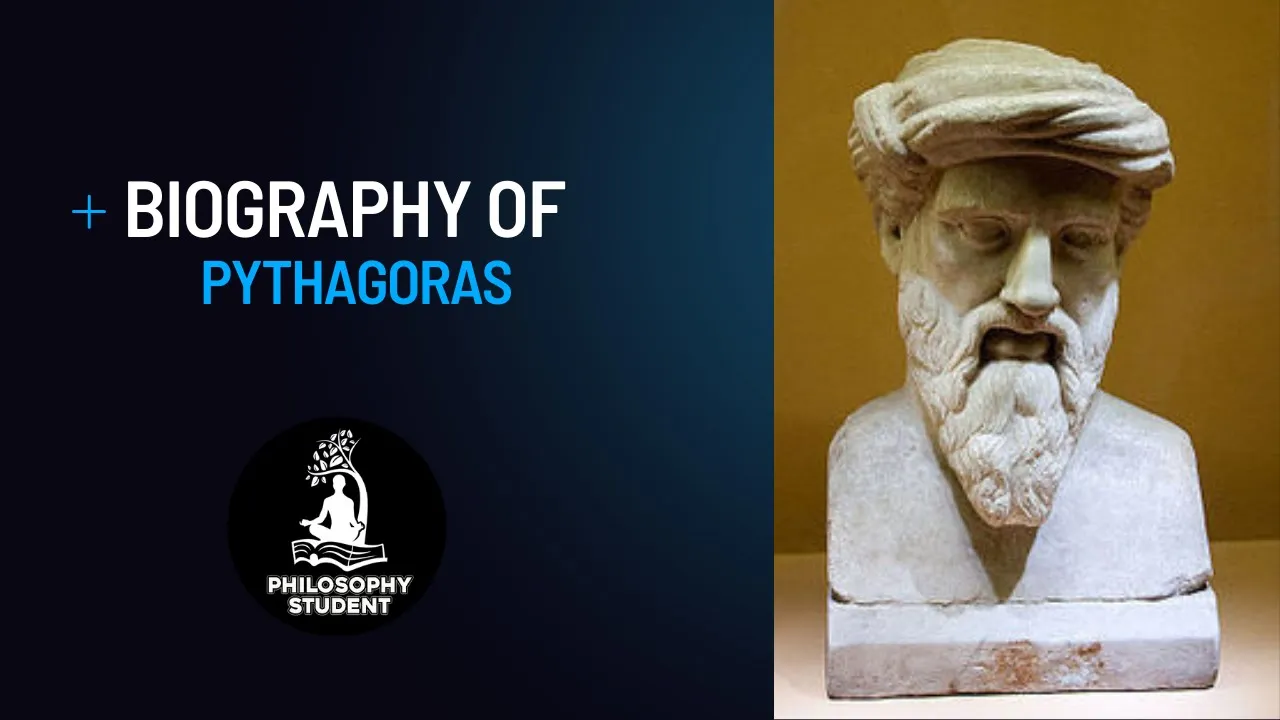Most widely known as a mathematician and the creator of Pythagorean geometry, the originator of the Pythagorean theorem, Pythagorean tuning, identification of the five regular solids, the Theory of Proportions, and the theory of a spherical earth, Pythagoras was born about 570 BC in Samos. Little is known of his life, and he left no writing.
It is known that he founded at Croton (in southern Italy) a society that was both a religious community and a school of science. Eventually, suspicions formed as to the activities of the society, which was attacked, forcing Pythagoras to flee Croton for Metapontum, where he died about 495 BC. (Some versions of this account hold that he died in Croton.)
Beyond mathematics, the nature of the philosophical teachings of Pythagoras are uncertain. Associated with him is a theory of there being three classes of men. Those of the highest class are lovers of wisdom, below this are lovers of honor, and, at the bottom, are lovers of gain. This may be associated with a theory of a tripartite soul, which is attributed to Pythagoras as well as to Plato.
Pythagoras believed in metempsychosis, the doctrine of rebirth or transmigration of souls after death. While the body is mortal, the soul is immortal and is transmigrated from the dead body to a new incarnation. The belief seems to have come, in part, from Pythagoras’ claim that he could remember past incarnations of his soul.
As a cosmologist, Pythagoras apparently embroidered upon the cosmogony of Anaximenes, contributing to it the idea that the universe (the “Unlimited”) is as infinite as air but is given form by Limit. Limit, in turn, may be defined by certain numerical ratios, such as those that determine the concordant intervals of the musical scale. Pythagoras held that the practice of medicine was also defined by Limits in the form of opposites, such as the hot and the cold and the wet and the dry. The wise physician is learned in the blending of these opposing Limits to produce effective treatments. Pythagoras and his followers believed the human body was strung like an instrument to a certain pitch of hot versus cold and wet versus dry. Tuning for proper health was similar to tuning for harmonious and melodic music.
Pythagoras concluded that numbers were the key to all forms in the universe. They represented the form-giving Limits to the Unlimited, and his mathematics was, in effect, a cosmic numerology, which had metaphysical and mystical purpose but little or no practical application. His early disciples represented numbers and their properties through dots arranged in various patterns, including the triangular tetractys, which became a sacred symbol to those who lived in the Croton community Pythagoras founded. Here, evidently, philosophy merged seamlessly into a religion.




































